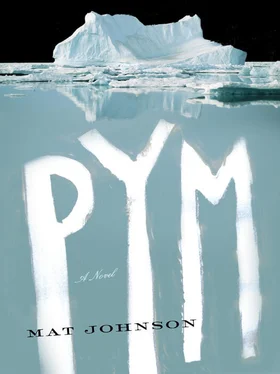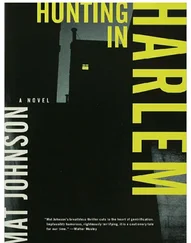It wasn’t hard to reach Mahalia Mathis: her phone number was listed in twenty-four-point font on every electronic page. In fact, the next morning Mrs. Mathis proved to be one of those rare individuals who picks the phone up on the first ring. Before it even rang on my end, catching me off guard. Even though I gave her a vague line of questioning about her website, Mrs. Mathis answered my opening questions immediately in a raspy but bubbling voice, as if we had an interview appointment prearranged weeks in advance.
“I am of Greek, Hopi, Crow, Blackfoot, Chinese, and Danish descent,” she interrupted me to declare immediately after I mentioned the genealogical page on her site. Hearing this, I poked my head back at the computer screen to look at the image of the Negro there looking back at me.
“Actually, I’m calling to inquire about one of your ancestors in particular. You listed a three times great-grandfather, by the name of Dirk Peters, is that correct?”
It was then that for the first time in this already five-minute call Mahalia Mathis actually paused from talking and came up for air. And what a great intake of air it was: a massive, dramatic gasp that seemed less appropriate to a question than to a mortal wound. The inevitable release of wind was no less a performance: the resultant sigh was labored and bass filled. I asked if there was something wrong.
“I will not be able to do this over the phone. You are a stranger, so I do not mind telling you: I am a very sick woman and I am not long for this world, honey. No, not long at all. If you expect me to discuss this … alleged Dirk Peters business with you, you will need … you will need to inquire in person. And considering my condition, you will have to do this immediately.” I eagerly agreed, and despite the clear theatrics, she had me hooked. Even though it would mean getting patted down at the airport for an hour, and risking an airborne explosion flying to Chicago.
I didn’t know that meeting Mrs. Mathis also meant I would be forced to travel from Chicago to the bleak urban landscape of Gary, Indiana; after thoroughly reading her website, I was under the impression that Mahalia Mathis was a resident of the Second City. I soon found that what I thought was a residential address in Chicago was in fact a post office box, and that her driving directions led me not only out of the city but out of the state of Illinois altogether. This information arrived at my cottage in an overnight package from Mrs. Mathis, along with an elaborate press package that included glossy head shots of the lady and several print clippings from her neighborhood newsletter, some more than a decade old, all attesting to her numerous creative abilities.
I found her residence an hour out of O’Hare without much trouble. It was harder to leave my rental car parked on her street, with its thugs hanging about the concrete like bats hang in caves.
“Niggers!” Mrs. Mathis yelled out at them as she let me into her town house, a response which only increased my concern that the car was done for, despite the fact that she insisted this would scare them away for a while.
The home of Mahalia Mathis was elegant on the inside, ornate. It was crowded too. There were many possessions on display in this house, and many, many cats to guard those possessions. Mrs. Mathis struck an impressive figure herself, wearing a muumuu of green paisley silk and a sparkled turban to match. She was a statuesque woman, both in height and in weight; aside from an occasional violent fit of coughing, she didn’t look sick or weak to me as she went about her overcrowded house, with its many boxes and piles of antiques and random curiosities. She was a hoarder, and I was happy about this: if this woman had ever possessed anything of use to my quest, it was clear that she still had it.
It was in Mrs. Mathis’s living room, seated at a large mahogany table covered in antique lace, that we began our discussion in earnest, tape recorder and notepad on my side of the table, a dusty box marked “pictures” on its lid in a handwritten scrawl between us.
“You must realize that the man you speak of—”
“Dirk Peters,” I interrupted. I wanted no mistakes about this.
“Dirk Peters,” she acknowledged with a hand to the side of her temple, as if even uttering those words made her anxious. “You have to understand, in my family, we weren’t even allowed to say his name out loud. No one in my mother’s generation talked about him, and that’s because no one in her mother’s generation did, or the one before that.”
“But why?” I asked, largely because Mrs. Mathis took a couple of seconds off after her opening confession, dabbing her head with a handkerchief repeatedly even though it must have barely been more than sixty degrees Fahrenheit in the room. I was still wearing my coat.
“Because he is the Dirk Peters written about by that great author Mr. Edgar Allan Poe, all those years ago. The one who accompanied Arthur Gordon Pym on his southern adventure!” she shot back at me as if I was a fool. But I did not feel like a fool at that moment. To the contrary, I felt brilliant: I hadn’t even mentioned Poe’s novel before this point.
“Mrs. Mathis, do you realize that this is a major historic revelation?” I asked, struggling to constrain myself. “It’s an important discovery for American literature and for America herself. Why did your family keep this a secret for so long?”
In response to my query, Mahalia Mathis made no attempt to hide her disappointment in the poor display of intelligence on my part for even pursuing this line of questioning. After much eye rolling and elaborate head wagging had been completed, Mrs. Mathis finally saw fit to compensate for my lack of intuition.
“Well, he left that poor white man down there to die, didn’t he? Not only did he go along with a mutiny, which would have brought shame enough to my family’s name had it been widely known. But the fact that he left that poor white man to die on some iceberg, to freeze to death. The fact that Arthur Pym was a famous white man just made it worse. Time was, if white folks hear your kin killed one of them, they libel not to let the fact that it was a hundred years ago stop them from getting their rope.”
“Oh, I get it, I see, right. Why didn’t I think of this before? Of course there would have been larger, real-world repercussions to worry about, particularly as an African American man in—”
“A what?” Mrs. Mathis’s hand shot down to collapse on my own.
“An African American man?” I repeated, assuming I had garbled the last of my words in the excitement of the moment. When I said “African” again, Mrs. Mathis squeezed my fingers so tight it left me with the impression of being gripped by a blood pressure machine.
“Honey, I got lots of Indian in me. I got Irish and I got a little French too. I got some German, or so I’m told. I even got a little Chinese in me, on my mother’s side. Matter of fact, I’m sure I got more bloods in me than I knows. But I do knows this: I ain’t got no kind of Africa in these bones,” Mahalia Mathis delivered, poking her naps back under her turban as she snorted at me derisively.
After taking a moment to gather herself from my apparent slight, Mrs. Mathis proved to be as helpful as I’d hoped. From the cardboard box that sat beside her, she removed a folded piece of yellowed paper carefully wrapped in aged cotton cloth, and placed it on the table before me. Although clearly impressed with the white gloves I had brought with me for the purpose of revealing to her my own Dirk Peters manuscript, Mrs. Mathis still smacked my hand when I reached for her document. She chose instead to hold open her fragile paper for me to read. I was expecting to see Peters’s chicken-scratch handwriting before me, and when I didn’t I could feel my body deflate slightly in response. It was good that it did, because when I read the words written there I needed room for my mind to expand.
Читать дальше












